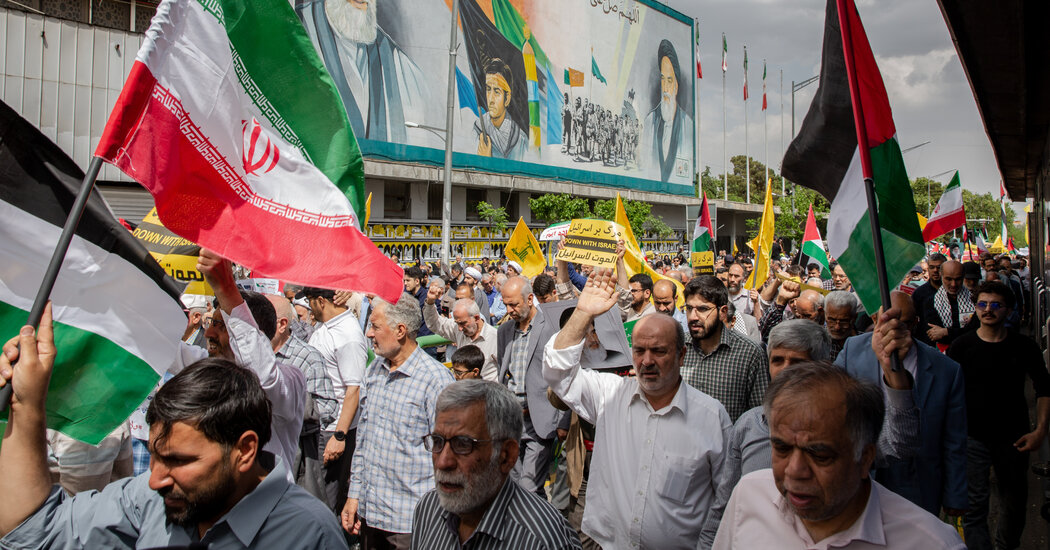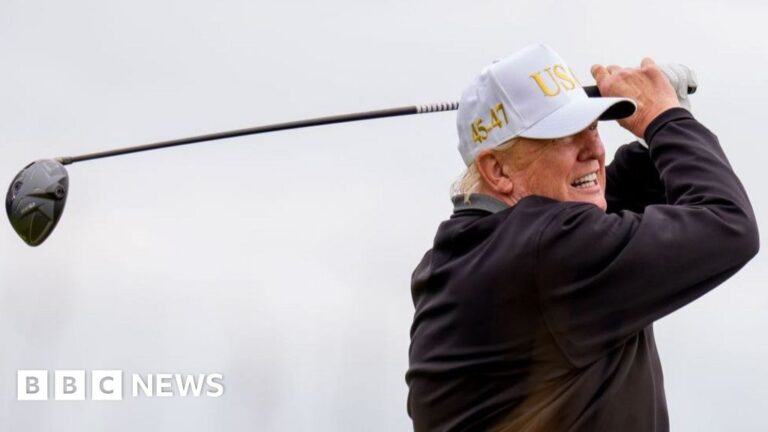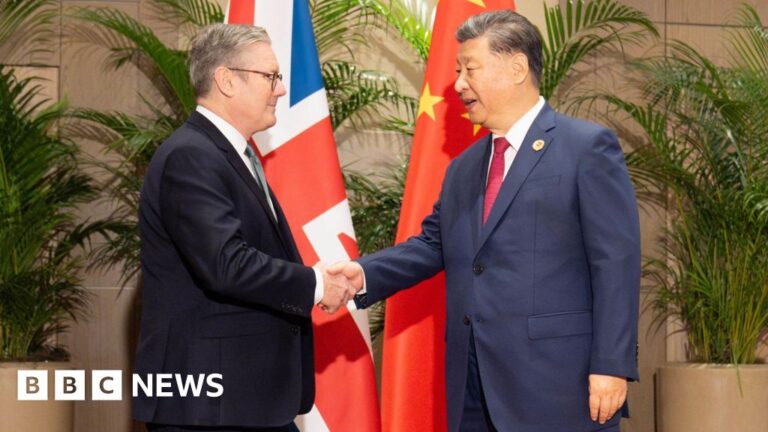Here is the result in plain text:
A brief handshake may be the most likely outcome from preliminary diplomatic talks that started on Saturday between American and Iranian officials over Tehran’s nuclear program. It would probably be enough to keep the discussions going, and potentially lead to the first official face-to-face negotiations between the two countries since President Trump abandoned a landmark nuclear accord seven years ago.
The talks, in the Gulf nation of Oman, are a feeling-out session to see whether the Trump administration and Iran’s clerical leaders could move to full negotiations to limit Iran’s nuclear activities.
The Iranian state news media reported that the talks had begun midafternoon in Muscat, the Omani capital, which American and Iranian diplomats have used as neutral negotiating territory for years. Iran’s foreign minister, Abbas Araghchi, and Steve Witkoff, the American official leading Mr. Trump’s team, both arrived hours earlier.
The two sides are coming in with deep distrust, given that Mr. Trump walked away from the 2015 accord that Iran had brokered with the United States and other world powers, and then imposed harsh sanctions on Tehran during his first term.
Mr. Trump now wants to strike a deal — both to showcase his negotiating skills and to keep simmering tensions between Iran and Israel from escalating into a more intense conflict that would further roil the Middle East.
Iranian officials are skeptical but are open to “a chance for an initial understanding that would mark a path for the negotiations,” Mr. Araghchi said on Saturday before the talks began.
Oman’s foreign minister, Badr al-Busaidi, met separately with Mr. Araghchi and Mr. Witkoff to outline the format for the talks. The Iranian delegation had planned to convey that it is open to talking about scaling back uranium enrichment and allowing outside monitoring of its nuclear activity, according to two senior Iranian officials who spoke on the condition of anonymity to discuss a sensitive matter.
Experts predicted that a handshake or another brief encounter would be a way to satisfy both sides and send a gesture of good will without direct negotiations.
At issue is the dwindling power of the original nuclear deal — which European leaders have kept limping along since 2018, when Mr. Trump withdrew the United States. The deal’s most punishing restrictions expire in October.
Only nine countries are known to have nuclear weapons, and adding Iran to the list could pose an existential threat to its main adversary, Israel, and other nations. Experts also have raised concerns that Iran could share its nuclear capabilities with terrorist groups.
Iran has long maintained that its nuclear activities are legal and meant only for civilian purposes, like energy and medicine. But it has highly enriched uranium, beyond the levels necessary for civilian use, which can be used to make a nuclear warhead.
In the years since Mr. Trump withdrew from the nuclear accord, Iran has steadily accelerated uranium enrichment to the point where some experts estimate that it could soon build a nuclear weapon. Its economy has crumbled under American sanctions, and Mr. Trump this week imposed new measures targeting Iran’s oil trade.
Israel’s government worries that Iran will expand its nuclear program and is pushing to destroy it.
While Mr. Araghchi was closely involved in the earlier negotiations, Mr. Witkoff has little experience in the technical aspects of Iran’s program. He arrived in Oman after a visit Friday to St. Petersburg for talks with President Vladimir V. Putin of Russia about a potential cease-fire between Russia and Ukraine.
A new deal could be reached pretty quickly, he said, but Iran would most likely commit to little more than what it agreed to in the 2015 accord. Such an outcome would irritate Israel.
It also might not be enough for Mr. Trump, who previously demanded more limits both on Iran’s missile development and its proxy forces in Iraq, Lebanon and Yemen, so he can claim to have struck a better deal than his Democratic predecessors.
Mr. Trump keenly wants to avoid a new war in the region, which his advisers have warned would siphon military resources away from other potential threats, like China, and detract from his efforts to be a president of peace.
Still, Mr. Trump has said he is prepared for the worst.
Mark my words: Iran prefers diplomacy, but it knows how to defend itself. We seek peace, but will never accept submission.
Source link




